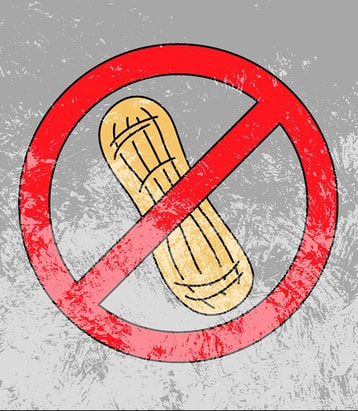|
Ask anyone to recall a difficult moment from their teens and early twenties, and there is a high probability their minds will go to an incident relating to sex. Even if the memory does not relate to specific sexual activity, it will have something to do with the unfathomable vicissitudes of living with a still-developing sex drive. For some, those recollections will involve the trauma of sexual violence. For others, the lucky ones, mere embarrassment, anxiety, or confusion.
We’re generalizing, of course, but our point is that most humans experienced an emotionally-fraught, sex-or-sexuality-driven episode (likely more than one) in their teenage and young-adult years. It’s something we all broadly share, along with the challenge of putting those difficult experiences into context and coming to grips with how and why they affected us. The psychotherapy industry sustains itself in significant part on helping people “work through” these experiences. It’s November 1, which means that today young men around the globe will embark on the #NoNutNovember, challenging themselves to abstain from masturbatory orgasm (or orgasm altogether) for an entire month. Only few will succeed in becoming “Masters of Their Domain,” to use the Seinfeld-ian term that presaged #NNN. In years past, commentators have debated the ontological underpinnings of young men’s desire to engage in #NoNutNovember. Do they refrain from orgasm in service of healthfulness? Moralism? Misogyny? Frankly, we find all of those arguments a little too reductive. From our perspective, it doesn’t much matter why someone decides to participate in #NoNutNovember, or in temporary sexual abstinence generally, so long they capitalize on the experience by becoming more mindful of their own sexual impulses and embarking on the deeply human task of coming to terms with their sexualities and how their actions affect themselves and (just as importantly) others. We are living through a reckoning about (mostly male) sexual misconduct in America and (though to a lesser extent) globally. There have been, of course, widely-reported revelations about criminal sexual predation. But also, the #MeToo movement has shined light on varying perspectives of what is and isn’t “acceptable behavior,” and on how we interpret and judge each other’s actions relating to sexuality. (See, for example, the cases of comedians Louis C.K. and Aziz Ansari.) It doesn’t break new ground for us to observe that some men struggle to understand and participate fully in discussions of sex-behavioral expectations. You could write volumes on the sources of this difficulty – toxic masculinity, gender normativity, neuroscience – without scratching the surface. It’s an immensely complex topic. That said, we think #NoNutNovember holds promise as a tool for men who might otherwise struggle to comprehend sex-related behavioral expectations. It’s a potentially blunt instrument, to be sure, but approaching abstinence from masturbation and orgasm the same way you might, say, take on the “Whole 30” diet or a juice cleanse, presents an opportunity to be mindful about your sexual impulses. Whether or not the health benefits are real or merely perceived, at least you are stepping out of a comfort zone and forcing yourself to think actively about your behavior. In other words, if tackling #NNN leads you to ask yourself “Why is my hand on down my pants right now?” or “What was I thinking about just before I reached for my phone to look at porn?”, then all the better. The answers to those questions offer insight into your actions. They open up new perspectives. And they often lead to even more questions that can prove revelatory:
These are important questions. The effort and introspection required to answer them (not to mention the answers themselves) lead in the general direction of the maturity and self-acceptance that lie at the core of human experience. And they might just make you a better person, a better friend, and a better lover, along the way. So, good luck to all of you #NoNutNovember “fapstronauts.” Take care. Be mindful. And remember, it’s the journey, not the destination, that matters most.
0 Comments
Leave a Reply. |
AuthorLonger-form writing from the PornHelp team on current topics relating to problem porn use and recovery. Archives
June 2020
Categories |


 RSS Feed
RSS Feed